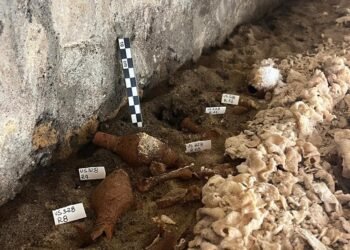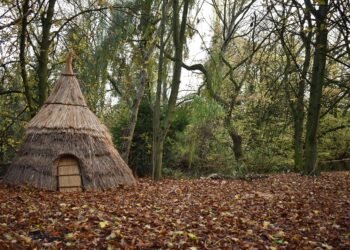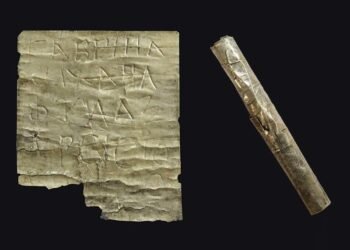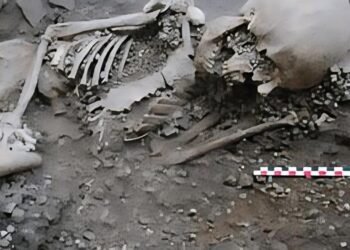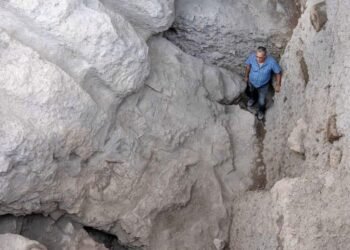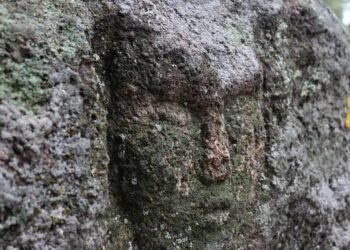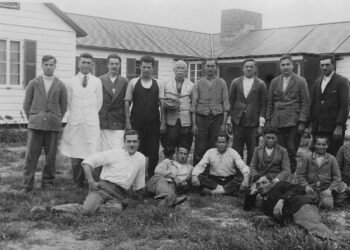Archaeologists excavating in the metropolitan district of Leeds, West Yorkshire, have uncovered a significant find dating back over 1,600 years.

The discovery centers around a lead coffin from Roman times. Initial assessments by experts from West Yorkshire Archaeological Services identified the primary occupant of the coffin as a woman aged between 25 and 35, believed to have been of high status, potentially even an aristocrat during the Roman occupation of Britain. She was buried with adornments including a bracelet, glass bead necklace, and a finger ring or earring, indicative of her elevated standing.
However, further analysis of the coffin’s contents revealed the presence of partial remains belonging to an unknown child, approximately 10 years old at the time of death. These remains went unnoticed initially due to the fragmented nature of the bones.
Stuart Robinson, speaking on behalf of Leeds City Council, noted that while the exact relationship between the child and the woman remains a mystery, carbon dating has shown that their burials occurred around the same period.

The lead coffin, a rarity in West Yorkshire, is currently undergoing conservation efforts to stabilize its delicate state. Plans are underway for its public display at the Leeds City Museum as part of the “Living With Death” exhibition, opening on May 3. This exhibition aims to explore diverse cultural approaches to death, dying, and bereavement.
Kat Baxter, curator of archaeology at Leeds Museums and Galleries, said: “This is a truly unique and remarkable find which has potentially huge implications for our understanding of the history of early Leeds and those who made their home here.” She highlighted the intriguing questions raised by the discovery of the child’s remains.
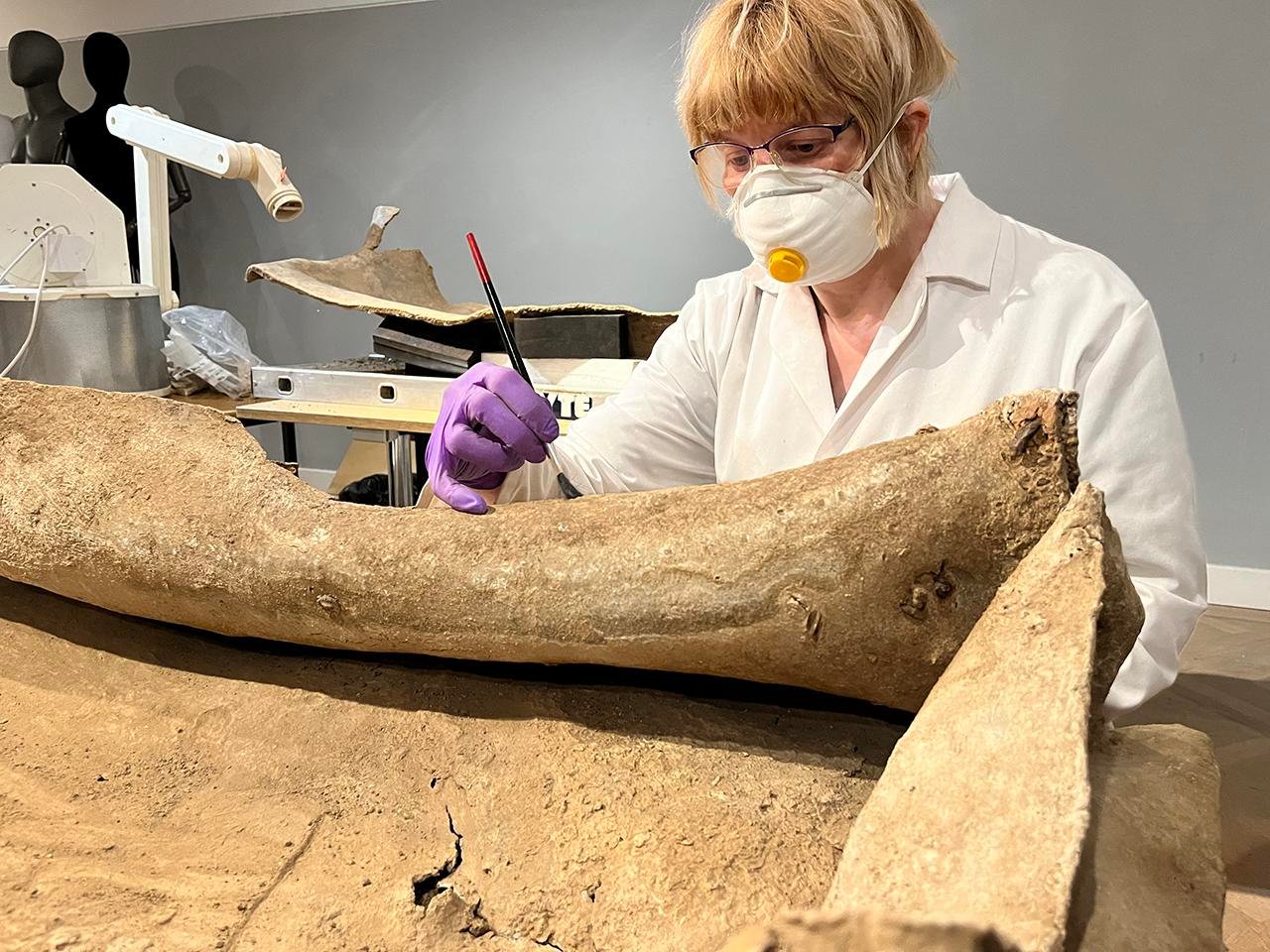
In addition to the lead coffin, the excavation yielded the remains of over 60 individuals from both the late Roman and early medieval periods. These findings provide valuable insights into past communities and their customs surrounding death and burial. Living with Death will feature a range of exhibits exploring diverse cultural perspectives on mortality, accompanied by talks, workshops, and family-friendly events throughout the exhibition’s duration.
Councillor Jonathan Pryor, deputy leader of Leeds City Council, emphasized the exhibition’s aim to spark conversations and foster understanding across cultures. He said: “This fascinating exhibition will reveal some astonishing facts and information about the history of Leeds and how people lived and died in our city centuries ago.”



